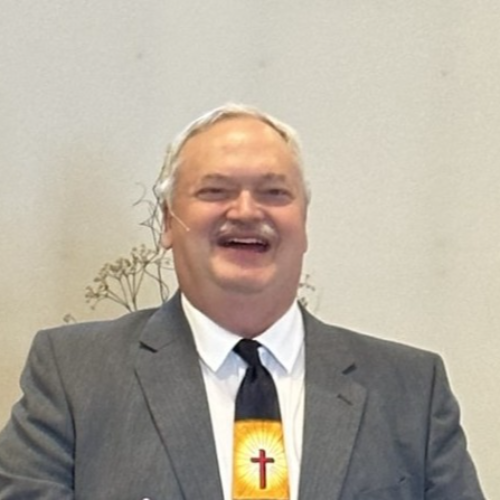-
The Master's Mark
Contributed by Kevin Barron on Nov 28, 2017 (message contributor)
Summary: An Ash Wednesday sermon that seeks to remind us of what we signed up for when we said we would follow Jesus!
THE MASTER’S MARK
ASH WEDNESDAY, YEAR A
2 CORINTHIANS 5:20-6:10
MARCH 1, 2017
FARM HILL UNITED METHODIST CHURCH, HARRISBURG, AR
INTRO. Branding your animals to establish ownership can traced at least as far back as the ancient Egyptians. The practice of branding slaves goes at least to the Romans. That mark on the hide of your animals would let people know what did and did not belong to them at any time they needed that information. In the American West, people would run their cattle all together, then the brands would be checked when the cattle were being driven to market to identify who owned what (Wikipedia). Down through the years, brands have been used for different purposes as well.
Many of us may have read Nathaniel Hawthorne’s The Scarlet Letter in high school or college English classes. Hester Prynne, living in 1642 Puritan Boston, is pregnant from an affair with someone she will not identify, but who, we find out, is Arthur Dimmesdale, the minister at her church. Sadly, such things happened even back then. Hester is forced to stand on a scaffold for three hours wearing a scarlet “A” on her dress, then is thrown into jail. When she is released, she lives a more quiet life. When her lover dies from guilt, he is seen to have an “A” branded on his chest, the mark of his adultery. Many people carry the mark of their guilt in one way or another.
And of course we have heard how the Nazis would identify many of their Jewish and other prisoners with tattoos on their arms. A needle was used to mark the prisoners so that, in life or death, the guards would know who they were. But how do people know who Christians? How are we identified by those who do not follow Jesus? It’s like the story I read of a woman who found out about a family in her neighborhood that was in great need. The husband had died, the mother was barely holding things together. This woman got them some groceries and other things and dropped them off. The family was very surprised. As she turned to go, one of the boys said, “Are you God’s wife?” She answered, “Well, no, but I’m one of his daughters.” The boy replied, “OK, I knew you had to be related to him somehow.” But what about us? How do the people around us know who we are related to? How do we bear the Master’s mark?
I. WE ARE AMBASSADORS (5:20-21). Verse 20 says we ambassadors for Christ. What is an ambassador anyway? A person who speaks and acts and lives on behalf of someone else that is not present. The United States does not have diplomatic relations with three countries: Bhutan, Iran and North Korea. There are also six very small island nations in the Caribbean and a very small nation in Africa that we do not have a diplomatic presence in. Of the rest of the recognized 195 countries in the world, the United States has at least one embassy or consulate in each of them (travel.state.gov). All those ambassadors are there to represent the United States, its president and their government. When I took my trip to the Baltics, we visited two U.S. embassies, one in Lithuania and one in Estonia. We got to actually meet the ambassador to Lithuania. He came breezing in, all sharp-looking, wearing a suit that looked really nice and pricey. But one thing sort of surprised me about him. Before he entered the room, different embassy staff had been in and out. I expected the ambassador to come in with at least two or three staffers in tow, maybe a security guard or two. But it was just him. He opened the door, walked in, and closed the door behind himself. And there he was, the embodiment of the United States for all of Lithuania. Now, having been born and raised in America, I understood he was just another American diplomat. I don’t remember his name, but he probably had an education at more prestigious schools than I did. Was probably worth more money than I was. I am sure his salary as ambassador was way more than I make. But still, I knew he was just another American.
But that’s not how they would see him in Lithuania. They would see him as the American in the country, unless the Secretary of State or the President shows up. He is the one they would go to for all things American, from the president and prime minister of Lithuania all the way down to the simplest country bumpkin. And I think we often forget how others see us as Christians. We look at ourselves as members of a church, as part of the body of Christ, as followers of Jesus who number in the millions, or even billions, across the planet. And we are all those things. But when I speak - or don’t speak - the love of Christ to that lonely soul, I am the Christian, the ambassador for Christ. When I share - or don’t share - the cup of cold water or piece of bread with the hungry person, I am the Christian, the ambassador for Christ. And when I let - or don’t let - my words and actions point to Jesus, I am the Christian, the ambassador for Christ, the embodiment on earth of who Jesus is and what he has done. What a brand for me to bear! How good of a job am I doing at being Christ’s ambassador?

 Sermon Central
Sermon Central



